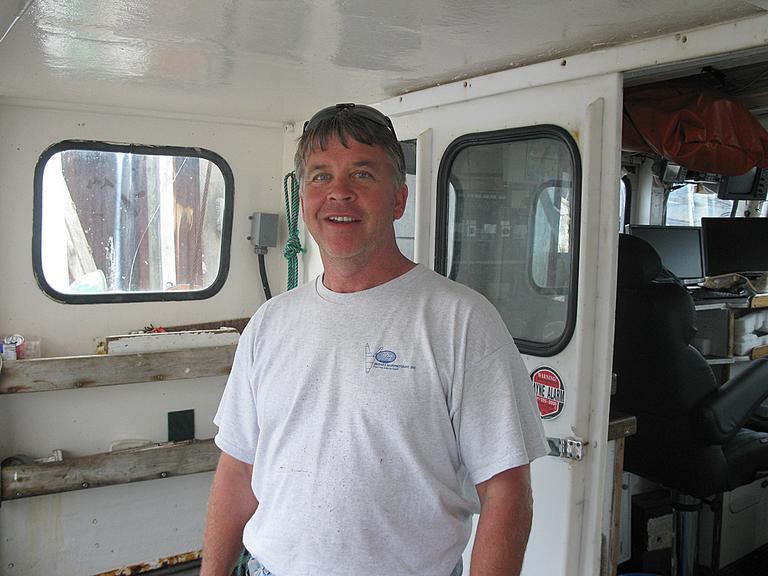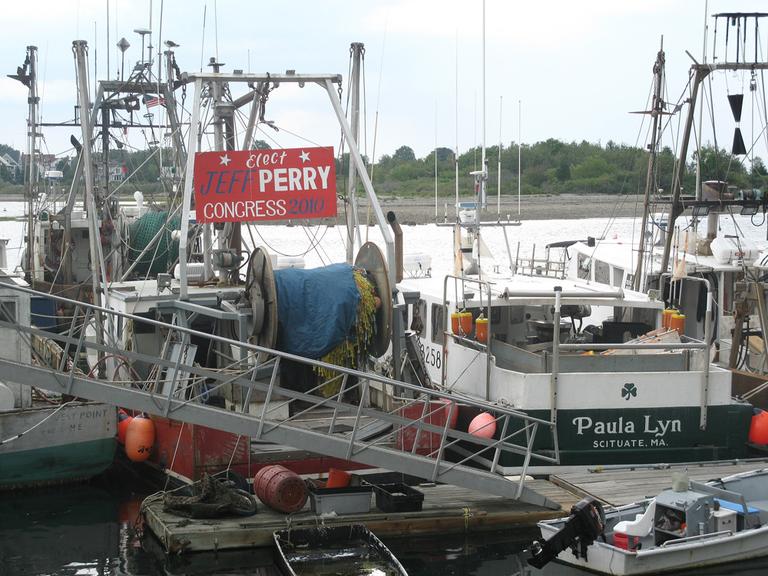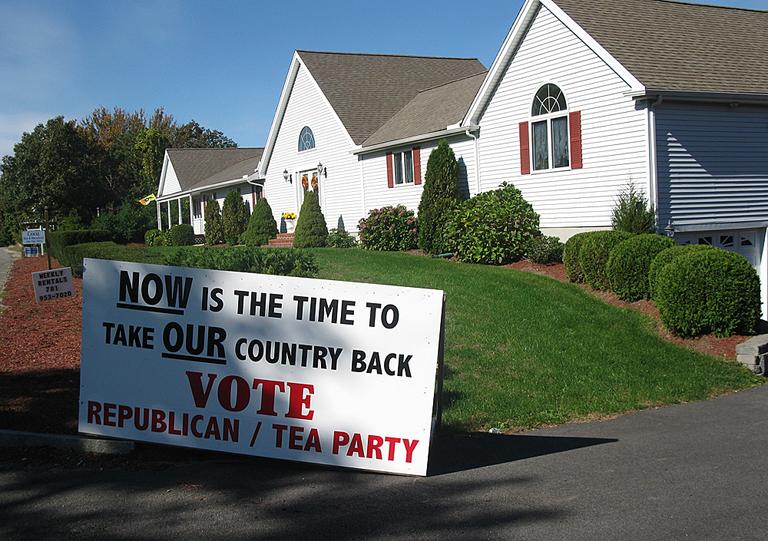Advertisement
Hard Times Could Help Republicans In 10th Congressional District
Resume
Ben Buck remembers growing up on Cape Cod in the 1970s.
"If you lived on the Cape up until about '78, '80, you could basically not even have to work," Buck said. "You could make a living from just going out in a little boat to get scallops. You could live off the land without having to have a real job. That's the way most of the Cape Codders lived."
Decades of growth have wiped away that quaint lifestyle, and now the down economy is hitting the Cape and the South Shore hard. Republicans are poised to capitalize on this situation.
The 10th Congressional District is really two districts. Cape Cod is losing people, while on the islands and the South Shore it's a completely different story: Asian-Americans are making Quincy one of the three towns in the district growing the most, along with Plymouth and Hingham.

But even though the South Shore's population is growing, one of the traditional pillars of the economy, fishing, is sinking. And Republicans could reap the benefits of that distress.
In Scituate Harbor, you can't miss Steve Welch's boat. It's the one with the huge Jeff Perry sign. Welch is one of eight or nine commercial fishermen left in town.
"There used to be upwards of 18, 20, 22 in the heyday, so it's not looking good," Welch said.
"If things continue the way they are going, we will be out of business next year. This boat here has been sitting since March. I have not used it."
Welch hasn't used his boat because strict quotas limit how many fish South Shore fishermen can catch. Fishermen like Welch up and down the coast complain that the quotas are killing their way of life.
"So I just sit idle and hope for the best," Welch said.
But Welch said it's not just the fishermen who are sitting idle.
"If we continue down this road where you make health care mandatory for small businesses, people aren't going to hire. They're going to keep under the threshold of employees, and it's just going to stagnate the economy," Welch said.
"I have friends in small businesses that do construction, carpet sales, fuel dealers and nobody's hiring because they're not sure of the health insurance issue."
Decades of growth have wiped away the once quaint lifestyle, and now the down economy is hitting the Cape and the South Shore hard.
An hour down the coast and across Cape Cod, we find Len Greiner in Harwich. The disappearance of Welch's commercial fishing business is hurting Greiner's charter sport fishing business.
"Now that the commercial fishing industry has gotten tight, a lot of those guys have become charter boat captains. So in a down economy, you have more people offering charter fishing, and less people looking to spend money, so it's had an effect on us," Greiner said.
Len Greiner's wife, Debbie, is making cranberry jelly in the kitchen. Her business selling the homemade jars, Cranberry Harvest, is booming. But because Len wasn't earning enough with his charter boat, the Magellan, he's had to go back to working for a regular paycheck.
"I've had to go back to sea," Greiner said. "I work in the Merchant Marine, because there is not enough commercial fishing and charter boat business to support a family."
Greiner is also seeing other families on the Cape having a hard time.
"I can think of three families off the top of my head that relocated within the last two or three years," Greiner said.

Harwich, where the Greiners live, is on the upper arm of the Cape, the part that went for Sen. Scott Brown. It's where most of the exodus is happening.
The lower arm of the Cape and the islands are Democratic strongholds. People are staying put on the outer Cape, and the islands' population is booming.
But back on the upper arm, people have been leaving the Cape in part because the construction business has been devastated.
The downturn in construction has affected Buck, and that's why we found him at a Republican rally on the town green in Dennis.
"We're suffering," Buck said. "I'm an electrical contractor. I work down in the Orleans area. We were out of work for two months."
Buck has four children, six- to 16-years-old, to support. He says the Cape is an expensive place to live.
"Families can't afford to live there," Buck said. "I'm one of the last few families in my area. And we're being pushed out because of the costs."
Over in Falmouth, Democrat Eric Turkington has become an expert on the political scene. For 20 years, until he retired last year, Turkington represented Falmouth and the islands in the Massachusetts House. And he sees a political consequence to all of those out-of-work fishermen, electricians and carpenters.
"They all drive pickup trucks, and they were very enthused when Scott Brown ran his campaign," Turkington said. "I was very intrigued by the number of people in the building trades who were very for him, and it's not that they cared much about his positions, or anything, but they were just pissed off. They were unemployed. Their families were in trouble, and they were just sending a message."
Republicans are counting on those families in trouble to send a message again next week.
Related:
This program aired on October 28, 2010.
